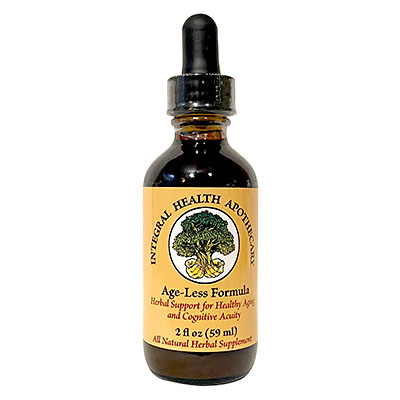WESTERN INTERPRETATION AND TREATMENT
A hormonal imbalance with a depletion of estrogen is identified as the cause of this syndrome, which is intensified by psychological complaints such as “empty nest syndrome” and “midlife crisis.” It is generally treated with hormone replacement therapy (HRT), although symptoms are often treated individually: for depression, antidepressants are prescribed; for insomnia, sleeping pills; for bloating, diuretics; and for anxiety, tranquilizers.
FIVE ELEMENT HEALING INTERPRETATION
The Chinese identify two major syndromes underlying the menopausal transition; these syndromes may or may not occur together:
- Deficient Kidney yin leads to deficient Liver yin with rising Fire signs (anxiety, palpitations, headaches, hot flashes, night sweats). In predisposed women, deficient Liver yin can lead to deficient heart yin, causing such symptoms as insomnia, forgetfulness, and palpitations.
- Deficiency in Kidney and Liver chi is characterized by stagnation and stuckness, which further weaken the Spleen and Kidney, creating a condition of chronic depression and hopelessness, as well as symptoms of indigestion, metabolic sluggishness, weight ‘gain, lethargy, and fatigue.
 COMPLEMENTARY TREATMENTS
COMPLEMENTARY TREATMENTS
SUPPLEMENTS
- Vitamin B-complex (best to use the high potency B-100 formula: the B-100 designation indicates that the product contains 100 mg of each of the B vitamins. Recommended dosage is one tablet per day, or as directed.)
- Vitamin B6 (100-200 mg/day in addition to B-complex)
- Vitamin D3 (2000 IU/day) Mounting clinical evidence suggests that Vitamin D can have a major impact on not only bones but also prostate, breast, ovary, and colon cell health. Variations in Vitamin D in the diet, exposure to sunlight, environmental conditions, gastrointestinal absorption, and genetic polymorphisms suggest that most adults should supplement with Vitamin D to ensure adequate intake and plasma concentrations.
Vitamin D is an essential nutrient that works with Calcium to help develop strong bones and teeth. This high-potency Vitamin D supplement also assists in maintaining a healthy immune system. If you’re not getting enough Vitamin D every day, you may not be able to adequately absorb calcium from the foods you eat, and your body will have to take calcium from your bones. - Calcium (500 mg/day)
- Magnesium (1,000 mg/day)
- Omega-3 fatty acids (eicosapentaenoic acid or EPA): These anti-inflammatory agents have general supportive effects on the circulatory system and a specific ability to reduce blood cholesterol levels. Omega-3′s reduces the joint stiffness and soreness caused by rheumatoid arthritis and improve flexibility. They are found in cold-water fish such as salmon, mackerel, herring, anchovies, sardines, and tuna. Eat two or three servings of fish weekly, or take a 1,500-mg. supplement daily.
- Gamma linoleic acid: GLA has well-documented anti-inflammatory actions and a balancing effect on the immune system. As many researchers and clinicians theorize, arthritis and other autoimmune diseases are caused in part by the body’s inability to manufacture GLA and other essential fatty acids. So this is a particularly important supplement for arthritis patients. GLA is available in oil of evening primrose, borage seed oil, and black currant seed oil. Take 1,500 mg. daily. GLA and omega-3′s work well together and are often found in combined formulas. Whether you take them separately or in one formula, make sure you get 1,500 mg. of each daily.
- Natural progesterone cream (ProGest Cream or Wild Yarn Cream), which can prevent and reverse osteoporosis, subdue hot flashes, and reduce anxiety; use 1/4 to 1/2 teaspoon rubbed into the lower belly, inner thighs, or armpits twice daily or as directed by your practitioner. If you are still menstruating, use the cream from midcycle until the onset of menses; if your periods have stopped, use it for fifteen days of each month.
 EXERCISE
EXERCISE
Exercise is extremely important during the menopausal years. General movement keeps the blood and energy flowing and prevents problems from occurring later on in life. Cardiovascular exercise keeps the heart healthy, while weight-bearing exercises help prevent osteoporosis.
HERBAL ALLIES
 • Chasteberry, (Vitex agnus-castus) Chasteberry, also known as monk’s pepper, is a “wise mother” herb, nourishing and supporting the mind/body/spirit and gently restoring balance and harmony to the entire system. Chasteberry is my most cherished ally for women suffering from PMS or women who have difficulty negotiating the transition from summer to late autumn-the menopausal years-and it is also useful for a wide range of other gynecological conditions. The herb’s effects are generally felt only after two or three months of faithful use; one to two years of regular use may be necessary for long-term improvement.
• Chasteberry, (Vitex agnus-castus) Chasteberry, also known as monk’s pepper, is a “wise mother” herb, nourishing and supporting the mind/body/spirit and gently restoring balance and harmony to the entire system. Chasteberry is my most cherished ally for women suffering from PMS or women who have difficulty negotiating the transition from summer to late autumn-the menopausal years-and it is also useful for a wide range of other gynecological conditions. The herb’s effects are generally felt only after two or three months of faithful use; one to two years of regular use may be necessary for long-term improvement.Common Uses
- Relieves menopausal symptoms such as hot flashes, night Sweats, depression, anxiety attacks, flooding, or heavy periods
- Relieves symptoms of PMS, including irritability, depression, headaches, bloating, and cramping
- Balances and regulates the menstrual flow
- Reduces uterine fibroids
- Helps resolve endometriosis
- Clears up hormonally-related acne and other skin problems
- Protects against osteoporosis and reproductive cancers (especially breast and endometrial cancers)
- Induces emotional calm
Common Uses
- Relieves irritability and depression
- Increases energy and stamina
- Deepens sleep, preventing insomnia
- Soothes and strengthens nerves
- Relieves muscle spasms and cramps (useful for intestinal colic and irritable bowel syndrome)
- Reduces pain and intensity of menstrual cramps
- Relieves menopausal symptoms, including hot flashes, night Sweats, fluid retention, fatigue, anxiety, and mental confusion
- Provides effective treatment for wounds, burns, and skin problems, including eczema, psoriasis, and cold sores, and quick relief for stiff or painful joints and muscles (Such treatments use the oil extracted from the leaves and flowers of the plant.)
Common Uses
- Relieves and reduces hot flashes
- Reduces cramping with periods (PMS or otherwise)
- Helps to stimulate menstrual flow and reinstate regular periods
- Reduces pain and discomfort associated with menstruation
- Thickens and moistens vaginal walls
- Relieves anxiety and irritability
- Promotes a good night’s sleep
- Tones and strengthens heart muscles and blood vessels
- Eases heart palpitations, calms a rapidly beating heart (tachycardia), and reinstates a steady heartbeat
Common Uses
- Helps to bring on delayed menstrual cycles
- Relieves tension and cramping associated with PMS
- Induces labor in a gentle, relaxing way (especially effective when used with blue cohosh, for these herbs seem to act synergistically to bring on contractions while relaxing and supporting the mother
- Reduces breast soreness or tenderness
- Reduces or eliminates menopausal complaints, including hot flashes, arthritic degeneration, headaches, and fatigue
- Used in Europe primarily to relieve neuralgias (nerve pains), muscle cramps, or any inflammatory condition associated with spasm or tension
Common Uses
- Balances the menstrual flow and promotes fertility (In China, patients are warned to avoid this herb if they do not wish to conceive.)
- Relieves painful periods and cramping
- Relieves the symptoms of PMS
- Soothes the hot flashes, irritability, dry skin, and dry vaginal membranes associated with menopause
- Stabilizes cardiac function and lowers blood-cholesterol levels, preventing heart disease and reducing menopausal palpitations (racing heart)
- Clears a cluttered mind and soothes a troubled spirit
Caution: Due to its vasodilatory and blood-promoting action, Dong Quai should not be used if you are experiencing heavy menstrual periods. Although considered safe to use during pregnancy, use only under professional supervision. Occasionally, Dong Quai can cause loose bowels or diarrhea; discontinue use if these symptoms occur.
COMPLEMENTARY HERBAL FORMULATIONS
(Traditionally, in both Western and Chinese cultures, the combining of herbs is of superior value than the individual parts. After over thirty years as an herbalist, the synergy of certain herbs became apparent and this understanding has been used to create our own Integral Health Apothecary formulas. We are also listing traditional Chinese herbal tonics which exemplify this synergy.)
- Integral Health Apothecary’s Women’s Transition Formula was created by Jason for women navigating the menopausal years. Derived from both Western and Eastern herbal traditions, the balancing herbs in this formula combine perfectly help to ease the transition and support the body’s ability to shift more smoothly. Ingredients: Rehmannia Root (Rehmannia glutinosa), Chasteberry, (Vitex Agnus-Castus) ), Oatstraw (Avena sativa), Dong Quai (Angelica sinensis), St. Johns Wort ( Hypericum preforatum), Siberian Ginseng (Eleuthrococcus senticosus), Motherwort (Leonorus cardiaca) and Red Raspberry Leaf (Rubus ideaeus)
ACUPOINTS
- Conception Vessel 4,
- Kidney 3,
- Kidney 10,
- Liver 3,
- Liver 14,
- Pericardium 6,
- Heart 7
SPECIFIC SYMPTOMS AND TREATMENTS
Mood swings: Exercise is essential, for depression and anxiety both reflect stuckness, or stagnation, and physical exercise will assist the Liver in moving the stuck chi energy. St. John’s wort stabilizes the nervous system. For chronic anxiety try Skullcap (Scutellaria) and the Chinese patent formula An Mian Pian (Peaceful Sleep Pills). Natural sunlight helps to counter depression; also for depression try Gui Pi Wan (Restore Spleen Pills), which strengthens the Spleen, nurtures the Heart and spirit, and builds chi.
Digestive problems (weight gain, sluggish metabolism, constipation, diarrhea, chronic nausea): To support metabolic function, try dandelion root. If “cold” prevails (loose bowels, chills, fear of the cold, pale tongue), try ginger. Add acupoints Spleen 6 and Stomach 36.
Sexual problems (lack of desire, lubrication problems): If vaginal dryness is a problem, try a lubricant such as K-Y Jelly, vitamin E oil, or cold-pressed natural oils such as sesame, safflower, almond, or coconut; use your fingers to rub the oil or jelly into the vaginal area. Nettles and raspberry leaves gently build up the chi energy and replenish the system. Dong Quai or ginseng supports Kidney function to increase lubrication and sexual interest. Natural progesterone cream helps relieve dryness of vaginal tissues. Kegel exercises increase circulation to the pelvic area, nourishing and toning vaginal and uterine tissues and enhancing orgasms. To stimulate sexual desire, try acupoints Kidney 3, Kidney 7, Governing Vessel 4, and Conception Vessel 4. To stimulate lubrication, try Spleen 6, Kidney 3, and Kidney 10.
Hot flashes: Avoid spicy foods and caffeine. Add vitamin E (800 iu/day alpha-tocopherol). For herbal allies, cry motherwort, black cohosh, Chasteberry, and Dong Quai. A specific Chinese patent remedy for hot flashes, insomnia, and night sweats is Da Bu Yin Wan (Major Yin Supplement Pills). Natural progesterone subdues hot flashes. For acupoints, add Liver 3. Ask yourself, What’s burning me up? How have I suppressed my passion (or my pain, creativity, anger)?
 MIND/BODY/SPIRIT CONNECTION:
MIND/BODY/SPIRIT CONNECTION:
- “I feel stuck-how can I move through these feelings of stagnation and stuckness?”
- ”I’m being called to move on in my life, but where am I gaining?
- ”I’m holding on to my blood so that I can become stronger and wiser – how can I share what I’ve learned and move forward with strength and vigor?”
- “What is essential in my life? What can I give up? What must I keep?”












